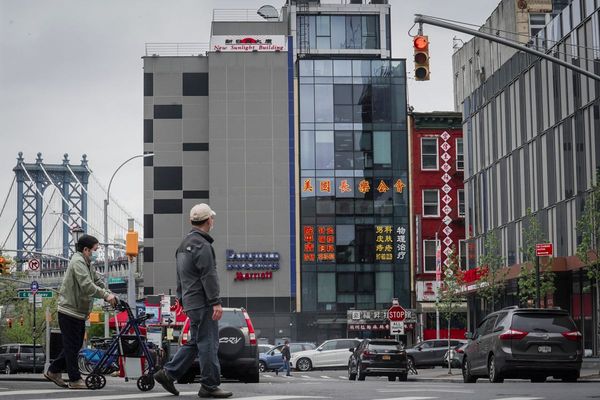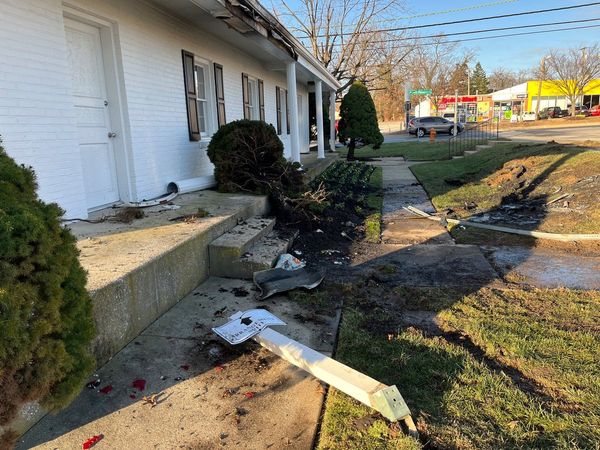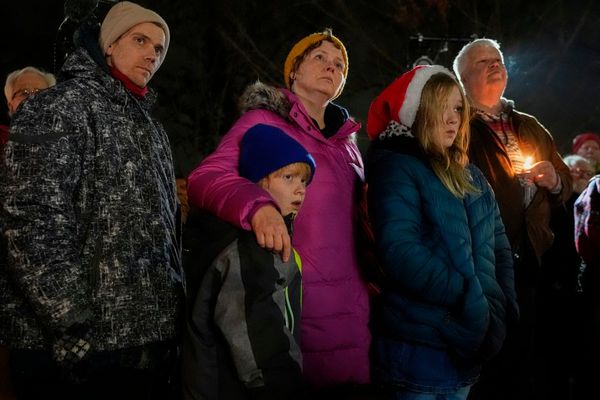
For anyone familiar with Melbourne’s Jewish community, the Adass Israel Congregation is a cornerstone. Nestled in Ripponlea — a suburb known for its eclectic blend of luxury and vibrant Jewish life including many kosher shops and bakeries — the synagogue is a hub of spiritual and communal activity. The ultra-orthodox Jewish community, which calls this synagogue home, is a constant presence with prayer services held throughout the day and Torah classes that run well into the night.
The Adass Israel community is Haredi (ultra-Orthodox). They are tight-knit and visibly Jewish, with their distinctive long beards, curled sidelocks and traditional fur hats worn on the Sabbath and Jewish festivals. Despite their prominent Jewish identity, they remain apolitical. Unlike many other synagogues that prominently display Israeli and Australian flags, Adass Israel is non-Zionist, rooted in a longstanding theological stance that Jewish people should not create a country until the time of the Messiah, so they do not officially recognise the State of Israel.
This community is as far removed from the Israel-Gaza conflict as any Jewish group in Australia can be. That’s why, on Friday morning, when I saw the first images and videos of the synagogue engulfed in flames — deliberately ignited by two masked men captured on camera with jerry cans of petrol — I was devastated, but not entirely surprised. Since October 7, 2023, when Hamas launched its brutal attack on Israel, killing 1,200 people and kidnapping hundreds — setting in train Israel’s war in Gaza and the deaths of more than 45,000 Palestinians — antisemitism has surged globally, including here in Australia.
In recent months, my community has repeatedly warned that we don’t feel safe. Synagogues have been targeted, Jewish people assaulted, businesses boycotted and threats proliferated online and in person. As I wrote a few weeks ago in Crikey to commemorate the one-year anniversary of October 7, in Australia, for the first time, my children are practising active-shooter drills at their Hebrew schools. Security patrols around Jewish kindergartens have intensified, and bomb-resistant fences are being erected. When I take my sons out in public, with their skullcaps marking them as Jewish, I feel a creeping unease that someone might target us.
When I shared these concerns, some dismissed them in Crikey’s comments section as paranoia. Now, with a synagogue — a mere five-minute drive from my home — deliberately set ablaze, I no longer doubt the gravity of the situation. Like many Jewish Australians, I’m frustrated by what feels like a lack of urgency from authorities. We are terrified and don’t feel like the government and police have done a good job of showing a zero-tolerance approach to antisemitism.
I understand that careful considerations have to be balanced in relation to political speech and antisemitism (i.e. I don’t think criticism of the State of Israel is antisemitism and I understand that sometimes these two issues get conflated, especially in data that is compiled by some Jewish groups). But without exaggeration, it really does not feel safe to be visibly Jewish right now in Australia.
Melbourne is home to one of the largest populations of Holocaust survivors outside Israel, including my late grandfather, Yossi Kaltmann. A sole survivor of his family, he chose this country because it was as far from Europe as one could possibly go. For Holocaust survivors, Australia represented a safe haven where the horrors of antisemitism would never follow.
I am grateful my grandfather did not live to witness the Adass Israel synagogue burning. He cherished this community, participating in its Kollel Balabatim, its daily Torah study program for retirees. When my grandfather passed away in 2016, the Adass rabbi visited my dad during shiva, the traditional seven-day mourning period after a person has died, offering the community’s comfort and solidarity. It is heartbreaking to think that this place — a sanctuary for so many Holocaust survivors who rebuilt their lives in Australia — has now been reduced to smouldering ruins.
This attack is not just a tragedy for the Adass community but a chilling reminder for all Jewish Australians that our safety cannot be taken for granted. I firmly believe that if more regular Australians understood the fear and anguish Jewish Australians feel, they would demand a more decisive response. While I trust the police will apprehend those responsible for this vile act, prevention must become the priority.
A zero-tolerance stance against antisemitism is no longer optional. The proposed protest-exclusion zones around synagogues that the Allan government is discussing is a good start, but a taskforce to investigate antisemitic crimes would also be helpful to properly deal with the problem. The Victorian government has legislation at its disposal, such as the Summary Offences Act 1966, which, with a very low threshold, would allow police to charge people. So far, this legislation has not been used. These laws include specific provisions under Section 21, which allows people to be charged with “disturbing religious worship”.
On Friday afternoon, I picked up my children and went shopping as we do every week for Sabbath, in Ripponlea. The aftermath of the attack was impossible to ignore. Police tape surrounded the Adass Israel synagogue. Fire trucks, police cars and media crews crowded the streets. My five-year-old daughter, curious as ever, asked why so many people were there.
I took a deep breath, searching for words I never imagined I’d have to say in Australia. “My darling,” I said, “some bad people burned down a shule [synagogue].”
Her little face registered the gravity of my words. After a moment, she said simply, “Mummy, that’s so sad.”
Sad doesn’t begin to capture it. It’s infuriating. It’s terrifying. But above all, it’s a call to action. Jewish Australians deserve to feel safe in their own country, to attend synagogues and send their children to Hebrew schools without fear. It’s time for Australia to step up, to stand firm against the rising tide of hatred, and to ensure that no community has to endure what ours is facing now.







